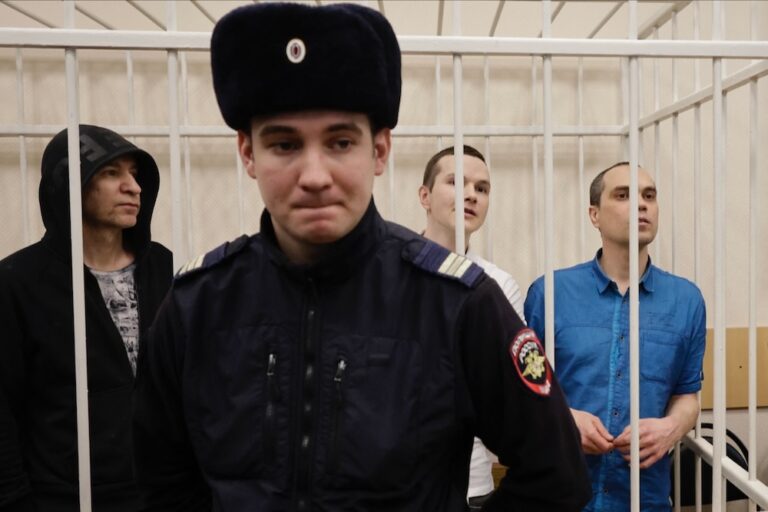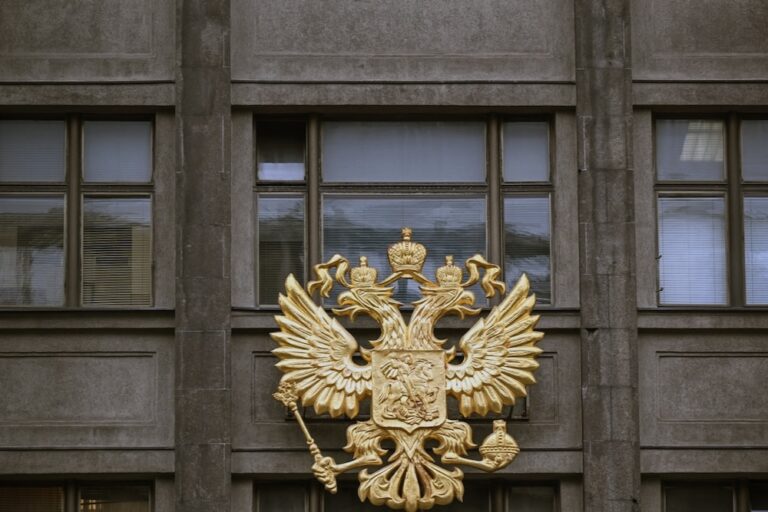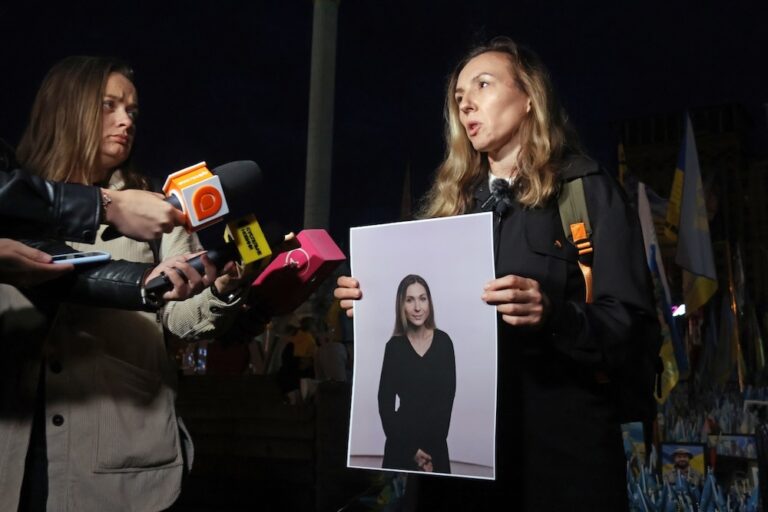(RSF/IFEX) – The following is a 28 September 2001 RSF press release: EUROPEAN UNION – RUSSIAN FEDERATION BRUSSELS SUMMIT RSF concerned about threats to information freedom and pluralism in Russia In a 28 September 2001 letter to Belgian Prime Minister Guy Verhofstadt, sitting president of the European Union, Reporters sans frontières (RSF) expressed its concern […]
(RSF/IFEX) – The following is a 28 September 2001 RSF press release:
EUROPEAN UNION – RUSSIAN FEDERATION
BRUSSELS SUMMIT
RSF concerned about threats to information freedom and pluralism in Russia
In a 28 September 2001 letter to Belgian Prime Minister Guy Verhofstadt, sitting president of the European Union, Reporters sans frontières (RSF) expressed its concern about the continuing decline of the press freedom situation in Russia in recent months.
“We fear that information freedom and pluralism, which have already been seriously threatened in the past year, will suffer further from the foreseeable hardening of President Putin’s policies in the Caucasus and towards independent media,” said RSF Secretary-General Robert Ménard. “At a time when relations between the European Union and Russia are likely to be reinforced as part of the fight against terrorism, it is more important than ever to remind the Russian authorities of their obligations with regard to the respect of human rights. We ask that you convey to President Putin the importance of Russia respecting freedom of information in the context of its relations with the European Union,” added Mr. Ménard.
Ban on covering the Chechen conflict
The kidnapping mafia which operates in Chechnya, but also Russian forces, constitute an ever-present and growing threat for journalists covering the Chechen conflict. Russian media outlets are barred from quoting the main Chechen leaders, including President Aslan Maskhadov. When this regulation is not adhered to, and after issuing warnings, the Ministry of Information takes away the offending media outlet’s licence and suspends its circulation in Russia, while also threatening to impose an outright ban on the media outlet in question. For their part, foreign media outlets are finding it increasingly difficult to operate, and accreditations for Chechnya are, in effect, impossible to obtain. According to information collected by RSF, an independent Japanese journalist, Kosuke Tsuneoka, who went to report in Chechnya, according to his family and friends, has not been heard of since late July.
Two journalists assassinated
Moreover, independent media outlets are targets of ever-increasing violence and pressure from regional authorities in the Russian Federation’s republics. On 20 July 2001, the body of Dmitry Ermakov, a reporter from Chernomorskij Kur’er’ and Krasnodar Izvestia, was found after he was thrown from the fourth floor of his home in the Krasnodar region. His colleagues noted that Dmitry Ermakov had told them of “exclusive information” he had uncovered, which implicated some local authorities in criminal activities. On 18 September 2001, Edouard Markevitch, publisher of the regional newspaper Novy reft, was shot and killed in Reftinsky, in the Sverdlosk region. This media professional, who was very critical of local authorities, had previously been the target of repeated pressure.
Private police against independent media
Efforts to silence media outlets that are critical of regional authorities have been stepped up in recent months. The takeover by private police, on 30 August 2001, of the regional television station TVK, in Lipetsk, which has been particularly critical of the region’s governor, highlighted the ever-increasing use of private police against independent media. The situation is also of great concern in the republics of Khakassi, Karachayevo-Tcherkessi, Upper-Altai (north-east of Kazakhstan), Udmurti (north of Volga), and in the Russian regions of Magadan and Smolensk.
Takeover of private media outlets
RSF also recalls that since June 2000, the Russian authorities have enforced a sytematic policy of taking control of the country’s main independent audio-visual media outlets. The public authorities’ orchestrated showdown with information sector oligarchs ended in the Russian state’s complete takeover of the only private station of national scope, NTV, and the calling into question of the activities of publications as influential as the newspapers Segodnia and Itogui. A state-controlled group also took over the semi-public ORT television station, which has the highest number of viewers across the Russian Federation. Announced and speculated about in the “information security doctrine”, which was endorsed by President Putin in September 2000, this policy designed to control media has systematically been put into effect over the past twelve months.
The continued judicial harassment of journalist Grigori Pasko, who filmed the pouring of liquid radioactive waste into the Sea of Japan in 1998, is also symptomatic of the Russian authorities? desire to maintain a policy of pressure and intimidation towards independent information.


